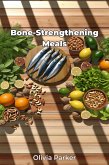This comprehensive exploration connects the culinary dots between Roman kitchens and medieval European cooking traditions, demonstrating how ancient wisdom often parallels contemporary nutritional science. Through careful examination of historical sources, including Apicius's Roman cookbook and monastery records, the book uncovers the remarkable sophistication of traditional food preparation methods.
The narrative progresses chronologically from 100 BCE to 1500 CE, examining specific techniques such as fermentation and preservation methods that shaped regional cuisines. Drawing from archaeological evidence, preserved food remains, and documented recipe collections, the book presents compelling insights into how historical societies developed effective cooking methods through practical experience.
One particularly intriguing aspect is how many traditional cooking techniques naturally preserved nutrients and promoted dietary balance, achievements that modern science now validates through research. What sets this work apart is its interdisciplinary approach, weaving together archaeology, nutrition science, and cultural anthropology to create a comprehensive understanding of historical gastronomy.
While maintaining academic rigor, the book remains accessible to both culinary professionals and home cooks, offering practical applications for modern kitchens. Rather than simply romanticizing the past, it provides objective analysis of traditional cooking methods, supported by evidence from food historians and nutritional anthropologists, making it an invaluable resource for anyone interested in the intersection of culinary history and modern cooking practices.
Dieser Download kann aus rechtlichen Gründen nur mit Rechnungsadresse in A, B, BG, CY, CZ, D, DK, EW, E, FIN, F, GR, H, IRL, I, LT, L, LR, M, NL, PL, P, R, S, SLO, SK ausgeliefert werden.









